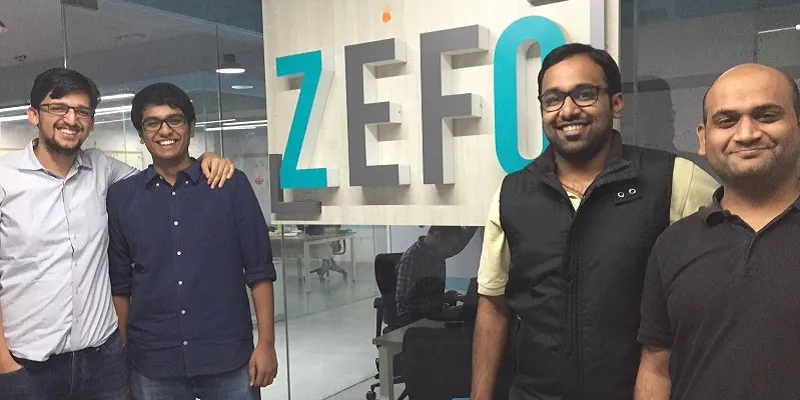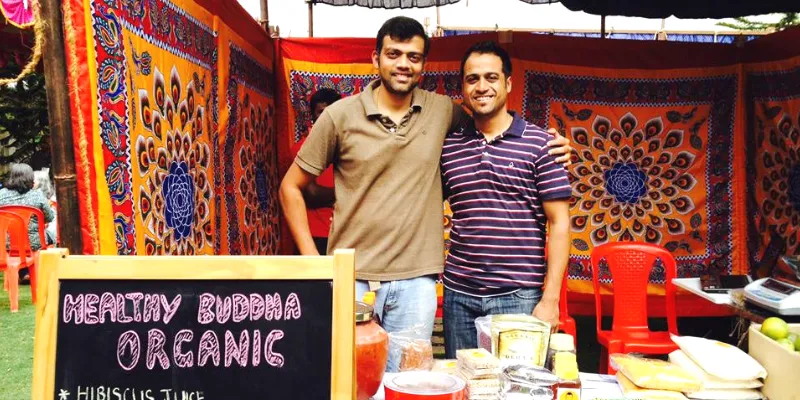Meet the 4 Indian startups who graduated from the Alibaba eFounders fellowship programme
Four Indian startups - Zefo, Healthy Buddha, NowFloats and Grozip – were among the 38 Asian firms who completed the fourth edition of the Alibaba eFounders fellowship programme.
Alibaba’s eFounders fellowship programme has one aim: providing entrepreneurs from developing countries with the right skills for their businesses.The platform, a joint initiative by the United Nations Conference on Trade and Development (UNCTAD) and Alibaba Business School, aims to create a community of passionate and successful “champions for the new economy”.
Four of the 38 Asian entrepreneurs who completed the fourth edition of the programme in November 2018 were from India. We take a closer look at these startups and what they do:
Zefo
A Bengaluru-based online marketplace for refurbished furniture and appliances, Zefo was founded in August 2015 by former Helion Venture Capital executive Rohit Ramasubramanian, IIT graduates Karan Gupta and Himanshu Joshi, and ex-Flipkart and ex-Amazon executive Arijit Gupta.

Besides buying products directly from consumers before refurbishing and selling them, Zefo has also tied up with online furniture sellers Pepperfry and Urban Ladder, and online horizontal marketplaces Flipkart and Amazon for exchange programmes.
In a previous conversation with YourStory, Rohit had said, “The second-hand goods market is an inefficient and unorganised market. There are many categories apart from automobiles that people transact in terms of second-hand goods - like furniture, appliances, and consumer electronics. The idea was to be in all three segments. We wanted to solve the problem of trust and convenience as there is a lack of trust on both, the seller's side and the buyer’s side.”
Zefo has tie-ups with brands like Godrej, Videocon, Micromax, Whirlpool, and HomeTown for factory seconds and exchange offers.
Currently providing services in Bengaluru, Mysore, Mumbai, Delhi and NCR, Zefo offers up to 15,000 products across 14 categories. The biggest value proposition they offer the seller is the opportunity to receive cash up front. More than 50 percent of its procurement comes from single sellers.
Zefo also offers buy-back guarantee on its products - where it offers up to 70 percent of the price back when users sell the products back to Zefo.
The ecommerce platform raised Rs 60 crore in Series B from existing investors Sequoia India, Beenext and Helion Ventures, in October 2017. They had raised Rs 40 crore from the same investors in Series A, in November 2016.
Healthy Buddha
Healthy Buddha is a Bengaluru-based farm-fresh organic food startup that aims to take chemical-free food to the masses. Founded by techies Gautham PB and Anurag Dalmia in 2014, Healthy Buddha is connected with 244 farmers across 12 states in India, who work on 347 acres of land collectively.

According to the founders, the startup has, over four years, helped avoid the use of 24,013 kg of chemicals and fertilisers. In an earlier conversation with YourStory, the founders said they delivered to more than 2,000 customers per week.
“Produce is harvested based on demand, so everything is fresh and there is minimal wastage,” Gautham said. What differentiates Healthy Buddha from other players is that they form a direct connect between the consumer and the farmer through face-to-face interaction at the farmer’s market.
The self-funded company focuses on farm-fresh vegetables from organic farms in and around Karnataka and Tamil Nadu. They source materials from across the country, including organic tea from Assam and apples and rajma from Himachal Pradesh. The organic food startup takes orders until Thursday, and delivers on Friday. Healthy Buddha now aims to expand to more cities.
NowFloats
Hyderabad-based SaaS startup NowFloats Technologies was founded in May 2012 by Neeraj Sabhrawal, Nitin Jain, Ronak Kumar Samantray, and Jasminder Gulati.
NowFloats enables small and medium businesses to scale their online presence with their main product, Boost. The solutions comprise of boosting the business website, boosting website management application, and enabling automatic search engine optimisation (SEO) of the website.
The startup also helps SMBs to set up a business website within minutes, along with auto-SEO, responsive design, product catalogue, and payment gateway. They also sync the SMBs’ social media channels for better reach.
SMBs usually update their website with relevant information about products and services; NowFloats analytics help the company figure out what's working best for them. They also allow customers to connect with SMBs directly.
According to the NowFloats website, they have brought over 130,000 merchants online and their websites account for 5 percent of all traffic generated by Indian SMBs.
NowFloats raised Rs 14.36 crore in a bridge round from Omidyar Network, Iron Pillar Capital and IIFL.
Grozip
Founded by Ananda Mishra, Abhishek Padhi, Surya Singhari, and Sonali Beherain 2015, Grozip is a marketplace focusing on hyperlocal delivery of all home essentials, including grocery. They facilitate both B2B and B2C delivery in Puri, Bhubaneshwar, Cuttack, and Rourkela.
Grozip focuses on creating a value proposition for local merchants and vendors, by allowing them to outsource delivery. They get these local merchants and vendors on-board and help them increase their sales and reach more customers.
On the customer side, they help people discover new stores in their neighbourhood. Currently focusing on groceries and food, Grozip aims to move to other spaces in the future.
With the skills received from the eFounders fellowship programme, these startups seem poised for greater success. The programme aims to fulfil the commitment of Jack Ma, Founder and Executive Chairman of Alibaba Group, to empower 1,000 entrepreneurs in developing countries by creating champions for sustainable economic development through digital economy, over the next five years.
The curriculum of the programme provides entrepreneurs with insights on Alibaba's journey from a small startup to a multinational conglomerate. It also encourages these entrepreneurs to share their acquired knowledge with the communities they operate in.







